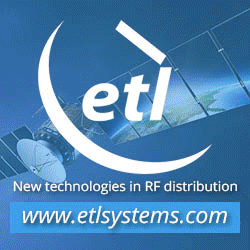LeoLabs Announces Costa
Rica Space Radar "Fully Operational"
April 22, 2021
LeoLabs, Inc., confirmed
"fully operational" status for its Costa Rica
Space Radar, effective immediately. This new
phased-array radar reinforces LeoLabs'
leadership as the premier data and services
provider to inform and protect the rapidly
expanding commercial and governmental activities
in LEO.
"Only nine months after
breaking ground in Costa Rica, it is gratifying
to announce full operational status for the most
advanced commercial space radar of its kind
anywhere on the planet", said Dan Ceperley,
LeoLabs co-founder and CEO. "The Costa Rica
Space Radar is a critical addition to the global
constellation of radars LeoLabs is building, and
clearly demonstrates not just our rapid
deployment capabilities, but the dramatic
increase in data underpinning our LeoLabs
services platform."
Costa Rica Space Radar:
Unique Contribution to New Space
With its newest radar site,
LeoLabs introduces a unique asset that provides
equatorial coverage for low inclination orbits,
giving the company full coverage of LEO. In
addition, the Costa Rica Space Radar provides
unprecedented capability to track objects,
including active satellites and orbital debris
down to 2cm. These objects represent the vast
majority of the risk in LEO. It is these risks
that are critical considerations for all of
LeoLabs' customer base, which includes satellite
operators, defense, space and regulatory
agencies, insurance, and the scientific
community.
"The implications of the
Costa Rica Space Radar are two-fold," explained
Edward Lu, former NASA astronaut and LeoLabs
co-founder. "First, it provides an increased
level of data to inform and improve the
operational services we offer to emerging
satellite constellations entering LEO. Every
service we provide, such as collision avoidance
or early launch tracking, benefits from the
additional data flowing off the Costa Rica Space
Radar. This is foundational. Second," Lu
continued, "in combination with our other
radars, the Costa Rica Space Radar expands our
ability to provide a real time map of more
objects in LEO, to characterize the risks, and
feed that insight to our customers. This is a
major contribution to space sustainability and
safety of flight."
Investment and Partnership
in Costa Rica
"LeoLabs is pleased to make
this strategic investment in Costa Rica,"
remarked Dan Ceperley. "We view this as a
long-term partnership for LeoLabs, and we are
grateful for the support provided by Costa Rica,
and our shared commitment to participating in
the new space economy."
To mark the occasion today,
LeoLabs hosted an inaugural ceremony at the
Costa Rica Space Radar site, attended by
numerous government officials, including Costa
Rican President Carlos Alvarado Quesada.
"LeoLabs investment in its Costa Rica Space
Radar is a true example of the range of
opportunities we have as a country in attracting
state-of-the-art technology companies that
promote a greater environment for innovation,"
said President Alvarado. He continued, "this
project extends responsible management of caring
for the environment to space, an inherent value
in a country like ours."
For her part, the Minister
of Science, Technology and Telecommunications,
Paola Vega Castillo, expressed that "the arrival
of LeoLabs to the country is a relevant
milestone that reminds us of the importance of
maintaining efforts to promote the development
of our population for the opportunities of the
knowledge era, and to support the consolidation
and opening of new businesses based on
technology with vision of future."
In addition to LeoLabs'
Edward Lu, the event was also attended by former
NASA astronaut Franklin Chang Díaz, CEO of Ad
Astra Rocket Company, a LeoLabs partner in Costa
Rica. "It's very exciting for the Costa Rican
space community to witness this important step,"
said Chang- Diaz. It is exactly the kind of
project that will enable new science, empower
students, and improve the safety of future human
spaceflight. We are very happy to be working
with LeoLabs on the execution of this
groundbreaking facility."











